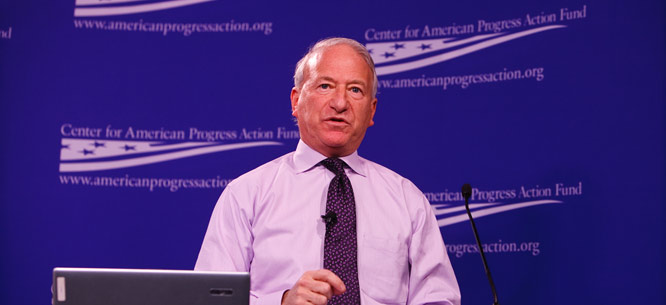The False Promise of Universal Basic Income?
< < Go Back
Five years ago, dropping the abbreviation UBI in conversation would be more likely to earn you a puzzled glance than a knowing nod. But these days, universal basic income—a policy often glossed as “paying people for being alive”—is gaining popularity both in the United States and abroad. UBI, where everyone gets a regular check from the government regardless of what else they’re doing or how they spend it, is an old idea. But it has seen renewed interest since the 2008 financial crash: as millions of people lost their jobs and wondered whether they’d find new ones, some also began to wonder whether they needed to work at all.
UBI was recently endorsed by the Movement for Black Lives as part of a reparations program, while Canada’s Leap Manifesto calls for consideration of UBI on the grounds of environmental sustainability. Jeremy Corbyn said last September that the Labour Party would investigate the prospects for basic income in the UK, and experiments are on the agenda in Scotland, backed by the left-wing SNP. In France, Benoît Hamon recently won the Socialist Party presidential nomination on a platform that included a basic income.
It’s often noted that Milton Friedman as well as Martin Luther King, Jr. supported basic income—and the new generation of advocates is similarly eclectic, running the gamut from Trump-supporting venture capitalists like Thiel to “fully automated luxury communists” like Peter Frase. There are, in short, many different reasons for supporting UBI—and just as many versions of what it could be.
Basic income is therefore often posited as a post-ideological solution suited to a new era of politics: the odd confluence of interest from the left and right tends to be read as a sign that political positions should be eschewed in favor of rational compromise. But UBI’s cross-ideological appeal is the bug, not the feature. Because basic income is politically ambiguous, it also has the potential to act as a Trojan horse for the left or right: left critics fret that it will serve as a vehicle for dissolving the remains of the welfare state, while proponents herald it as the “capitalist road to communism.” The version of basic income we get will depend, more than policies with a clearer ideological valence, on the political forces that shape it.
Which is why the prospect of pushing for basic income in the United States right now—when the right controls everything—should be cause for alarm: UBI’s supporters on the left should proceed with caution.
But that doesn’t mean basic income is a lost cause. To the contrary, capitalism’s inability to provide a means of making a decent living for the over 7 billion people currently alive is one of its most glaring defects—and one of the most significant opportunities for the left to offer an alternative. A universal basic income, though not the only answer, might point us in the right direction.
More From Dissent:




